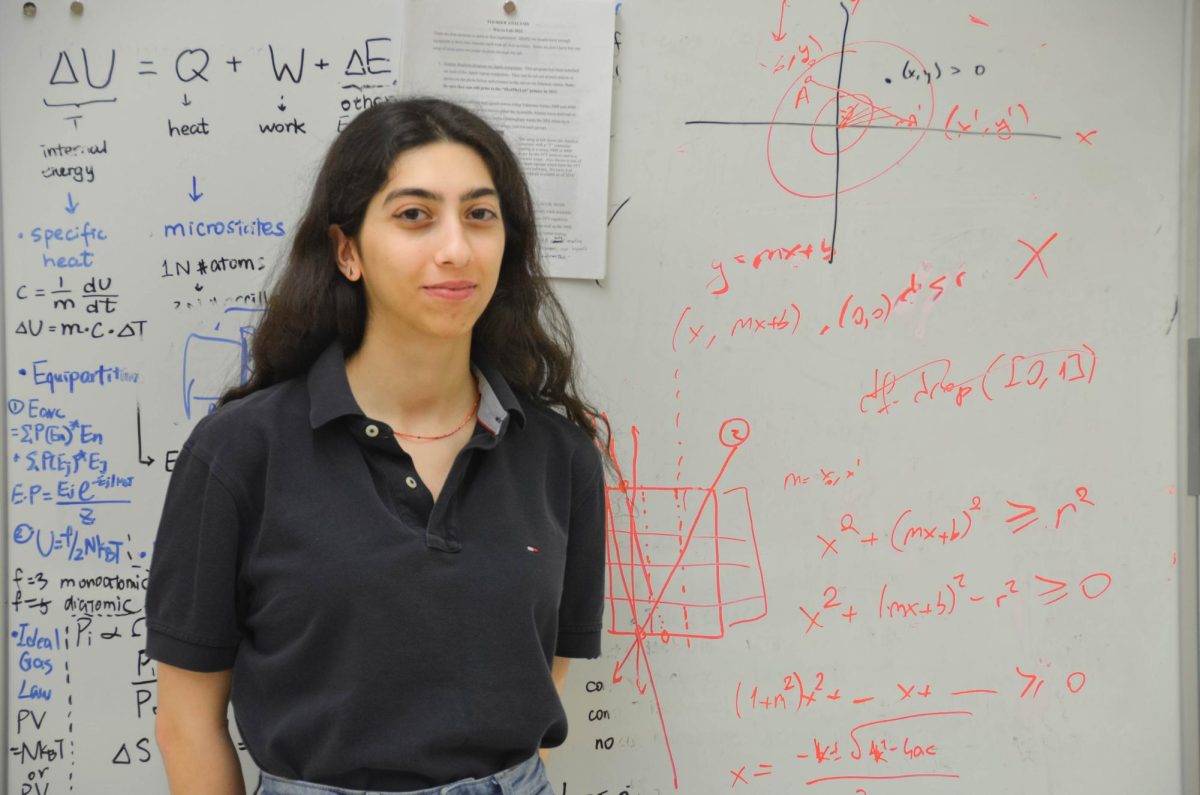
Meghna Adhikari `24 was born in Kathmandu, Nepal, the capital of a country at the height of a decade-long civil war in 2002. At six years old, her home country overturned its 240-year-long monarchy in favor of a new democracy.
Adhikari recalls little of her own experience during the Nepali Civil War. Most of her memories come later in the political aftermath of the war. She remembers being sent home from school in the city when she was young on account of nationwide strikes. She remembers grappling with the complete political shift Nepal experienced after establishing its constitution. She remembers the narrow framing of the war she heard from those around her — the framing of the Maoists, Nepal’s Communist Party who led the uprisal against the country’s monarchy, simply as “terrorists who had messed up the country.” And she calls these experiences more “privileged” than what other Nepali citizens faced in rural areas.
She admits she did not really understand much of what she was living through. At least, not until the summer of 2021 after her first year at Grinnell.
In those languid, hot summer months, Adhikari, surrounded by the pink walls of her childhood bedroom, started research on a project that would consume her for the first three years at Grinnell. Continually, she would return to this project on love’s role in social movements, revising and adding to it with the new theory and concepts she learned in her sociology classes until it eventually became a published paper in February 2023.
“That research project, it just allowed me to understand, it allowed me to remove myself from the topic and just to understand it as it was,” Adhikari said, particularly referencing the Nepali Civil War, one of the case studies in her paper. “Before that, I was living in Nepal, I lived through it, and only saw it from the perspective of someone there.”
Adhikari spent that summer and her entire first year at Grinnell in Nepal working and studying remotely due to the COVID-19 pandemic. While some international students at Grinnell could return early during the 2020-2021 academic year, Nepal’s U.S. Embassy remained closed throughout Adhikari’s first year. It was not until August of 2021 that she finally stepped foot on campus and U.S. soil.
“It just felt weird to be a second year and not have an existing, proper fit or even people I was close to,” Adhikari said. “It was a very weird dissonance there where I was like, ‘I’m a second year, but I feel like a first year.’”

Adhikari is soft-spoken and a self-proclaimed introvert — it takes her a while to warm up and feel comfortable in class. Yet, she found community in Grinnell’s small-town population of 10,000, a stark contrast from her hometown metro area’s population of over one million.
“I’ve always grown up in the city,” Adhikari said. “In a way, not having the option to run away, to have to sit with this community, to spend time with them, it’s such a crazy experience, but it’s worked out very positively.”
By the start of her third year, Adhikari co-founded the Nepali Student Organization with another student, Sneha Lohani `23, giving her another avenue to connect with her community and culture.
“It’s very useful to have these broader labels, such as Asian, but you also need space for the specific,” Adhikari said. “It’s also nice to have a smaller word that caters specifically to your identity … It’s nice to just have events where we’re able to talk in Nepali, eat Nepali food.”
Adhikari was drawn to Grinnell by the College’s open curriculum. She largely only took science classes at her high school in Nepal due to her parents’ urging. After enrolling at Grinnell, it was strictly “no STEM for a while.” She declared her first major in sociology long before the major declaration deadline and added her second major, English, and her concentration in peace and conflict studies after.
“I came in, I tried things out, and whatever felt right, I did that,” Adhikari said. She jokingly added she kept her majors a secret from her parents until deciding on going to law school. She’ll be attending Harvard Law School for her first year this upcoming August.
At Harvard, her idea is to approach her studies in the same way she did at Grinnell — trying things out.
Adhikari looked to Tamara Beauboeuf-Lafontant, professor of gender, women’s and sexuality studies, and to John Garrison, former English professor at Grinnell and Adhikari’s mentor for her research project her first summer, as impactful professors during her time at Grinnell.
Before heading off to Harvard, Adhikari said her plans this summer are simple. She intends to travel and renew her visa back home in Nepal. As for every introvert’s fear of the infamous law school cold call — “I’m sure I’ll figure it out.”







